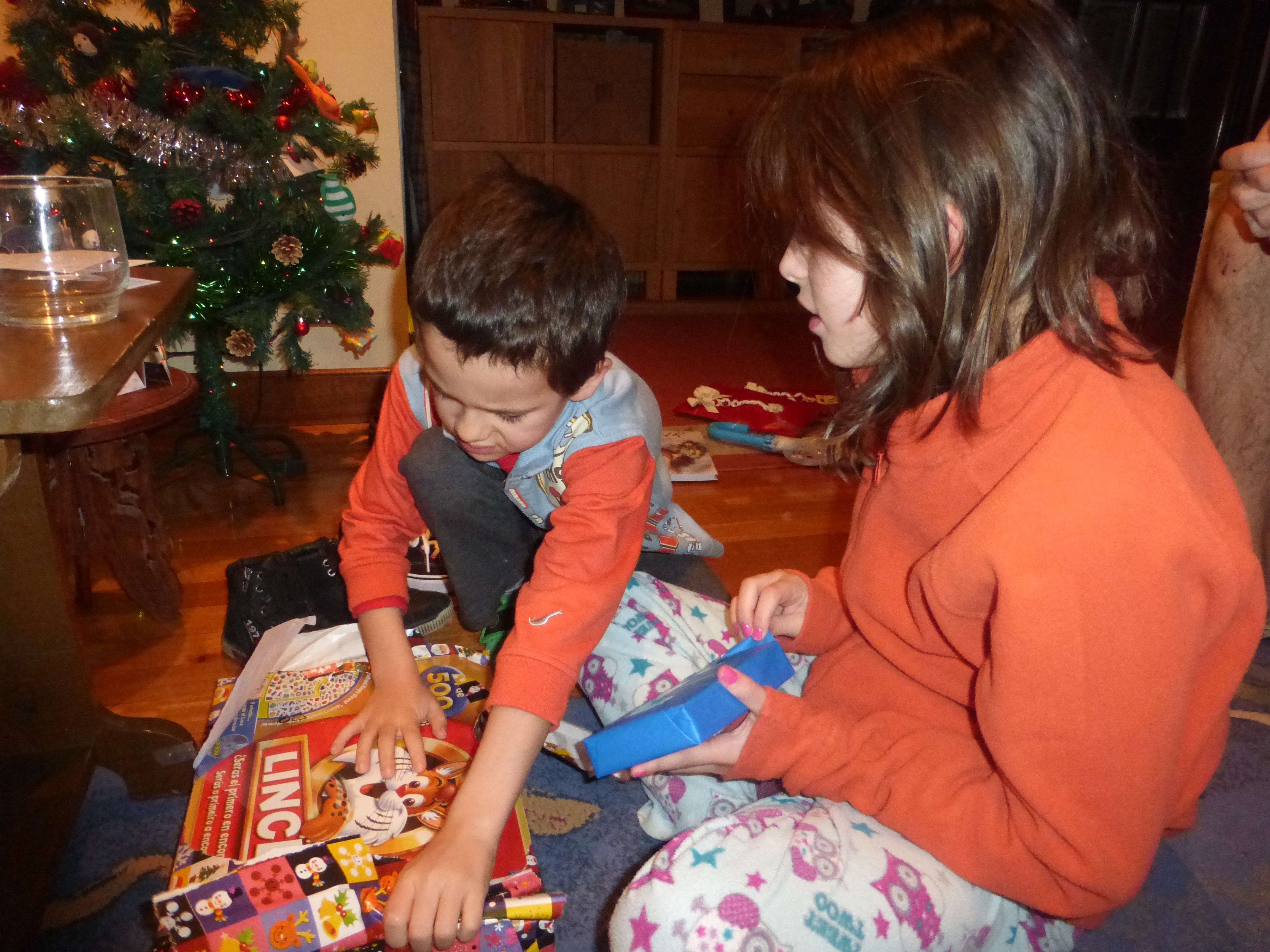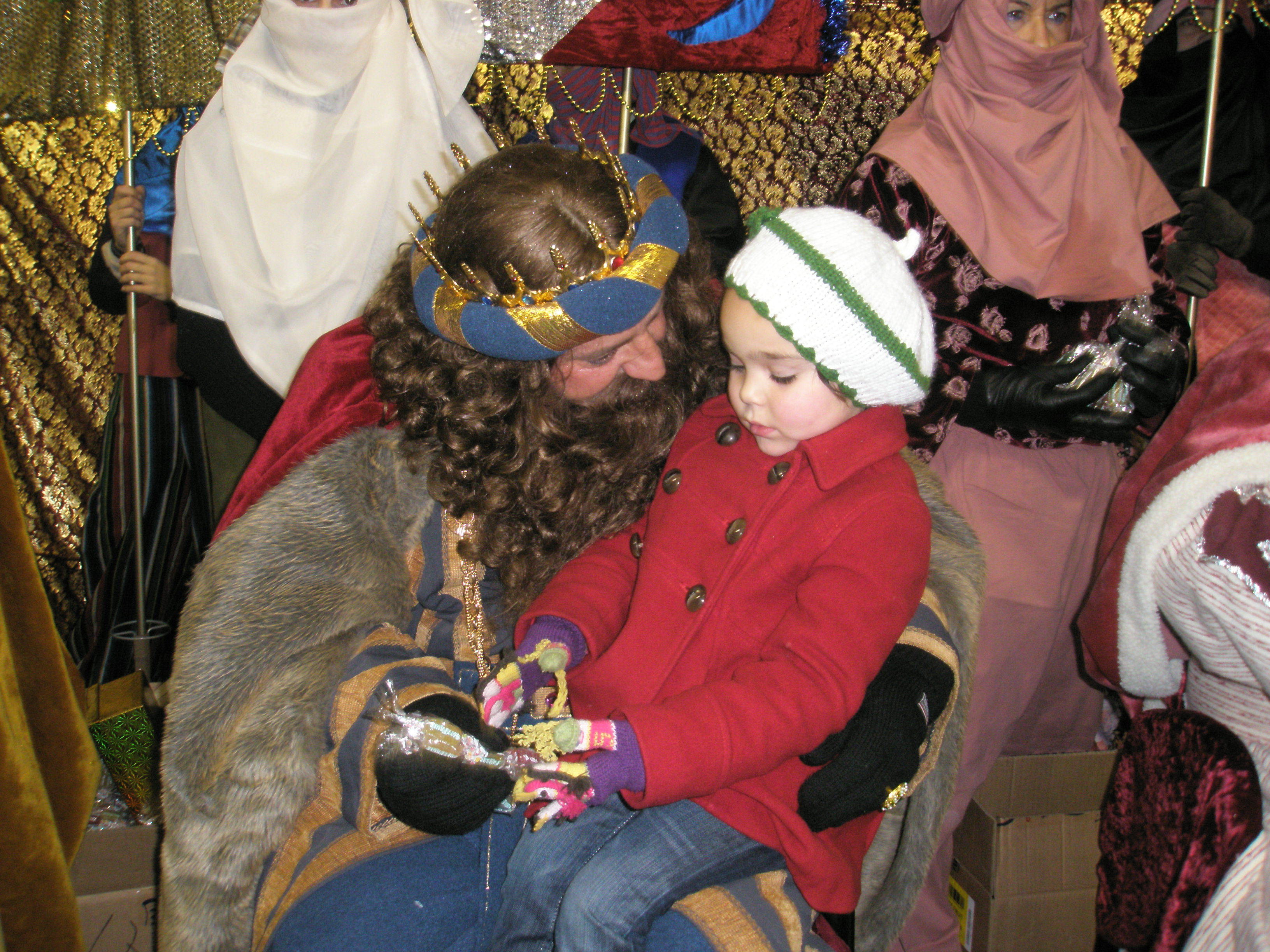Basque ethnography at a glance

Children opening their presents on Epiphany morning. Akaitze Kamiruaga. Labayru Fundazioa Photographic Archive.
The arrival of the Magi is celebrated on Epiphany, 6 January. The festivity is mostly enjoyed by the youngest members of the family. On the night before, it was customary to leave gifts at their bedside, which the little ones received with great joy as they awoke.
According to tradition children placed a well-polished shoe at the foot of their beds or on the window for the Magi to deposit the presents next to it. In the olden days the Kings presented children with fruits and confectionery. Later, the Christmas-gift giving practice changed, and parents would bestow simple toys and clothing or school equipment upon their children. To date the presents vary from sophisticated toys to expensive technological devices.
Strong competitors for the Magi have appeared on the scene: namely, Father Christmas and Olentzero, the latter in our territory. Both deliver their gifts on the night of Christmas Eve, so children can enjoy them for longer time before school resumes.

Girl meeting King Gaspar. Akaitze Kamiruaga. Labayru Fundazioa Photographic Archive.
Formerly, the procession of the Three Wise Men was a spectacle of great splendour and visual awe. The Magi would arrive on horseback late at night, guided by torches and surrounded by pages. For some time now, the celebration takes place in the evening to allow young and adults to join in. The Kings come by all imaginable ways: train, ship, car… They march along streets and across squares sharing out greetings, kisses and sweets in their tour. Once the parade is over, children are welcome to meet them.
In certain places children ask for alms door-to-door on Epiphany. In Gernika-Lumo (Bizkaia) they sing the following song in their rounds:
Erregeak datoz (bis), Jesus adoratzen (bis). Gu be hemen gatoz (bis), limosnea batzen. Apalazio zalduna, Hiru Erregeen eguna. Zotzak eta paluak, txori bi horren kontuak. Hemen gatoz lau, kanpak joten bi, emoizu limosnea Jaungoikoagaitik. Eup!
(The Kings come, to worship Jesus. So do we, to collect alms. Apalacio man of honour, on the Three Kings’ Day. Twigs and sticks, stories about two birds. Here come four, two ringing bells, spare some change for God’s sake. Eup!)
Segundo Oar-Arteta – Etniker Bizkaia – Etniker Euskalerria Groups
Translated by Jaione Bilbao – Language Department – Labayru Fundazioa

